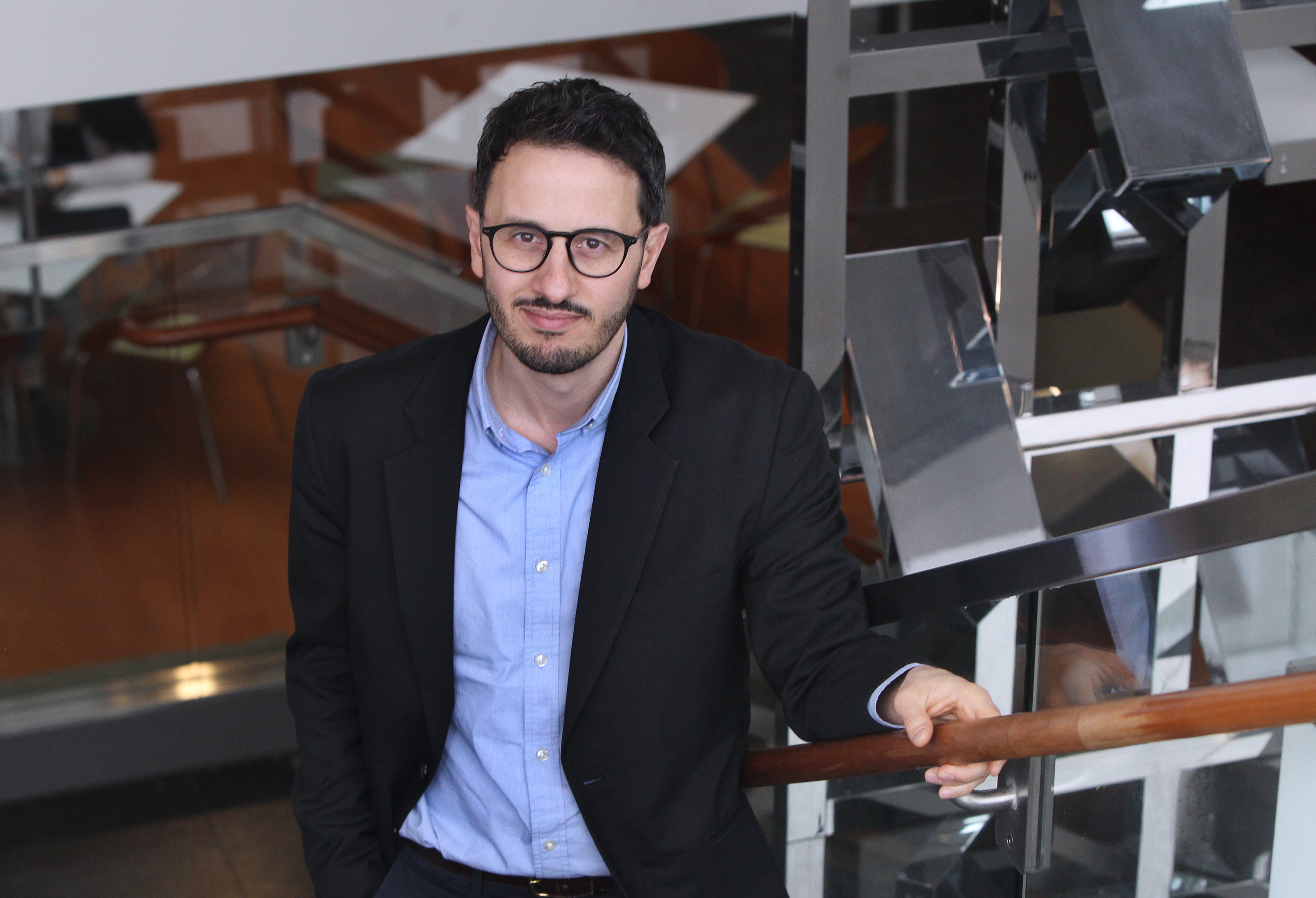Sébastien Philippe, a Research Scholar with the Program on Science and Global Security (SGS) received the American Physical Society’s (APS) 2025 Joseph A. Burton Forum Award. The Award recognizes outstanding contributions to the public understanding or resolution of issues involving the interface of physics and society.
Philippe is being honored by APS “For accurately estimating radiation doses from French and U.S. nuclear tests and effectively communicating these findings to the public, as well as assessing potential radiation from nuclear attacks on U.S. ICBM silos, demonstrating the importance of addressing scientific findings and consulting affected individuals.”
The citation references work by Philippe on French nuclear weapon testing in the South Pacific, including the book Toxique co-authored by Philippe that was named a finalist for the Albert Londres Prize.
The award also highlights his research, cited in The New York Times, reconstructing the spread of radioactive fallout from the first nuclear weapon test – the 16 July 1945 Trinity explosion. This work also was important in the campaign for expanding the coverage of the Radioactive Exposure Compensation Act to provide benefits to thousands of people exposed to radiation from nuclear weapons tests in the continental United States.
Another part of Philippe’s work recognized by this APS award was on the dangers to local communities and people across the United States of the current US program to develop and deploy a new generation of intercontinental ballistic missiles published in partnership with Scientific American.
Zia Mian, co-director of SGS said “Sébastien is an exceptional young scientist and his work is having global impact. He is playing an increasingly key role in the nuclear debate in France and in the US and globally through the United Nations, where he is a member of the Scientific Advisory Group of the Treaty on the Prohibition of Nuclear Weapons. This Group is the first international scientific body to have been created by a UN treaty process with the broad mission of advancing nuclear disarmament. Almost half the member countries of the United Nations now are signatories of the Treaty.”
Frank von Hippel, who co-founded SGS in 1974 and received the APS Burton Forum Award in 1977, and is now a professor emeritus in SPIA, reflected that “Sébastien has advanced the art of calculating the consequences of radioactive releases. He also has developed a new way to get government and public attention to technical work with important policy implications. Most of us academics feel we have done our jobs when we publish our findings in a peer-reviewed journal read by other academics. Philippe has shown in both France and the United States that, if you collaborate with journalists to make your results accessible to the wider public, the government policy-making process is much more likely to pay attention.”
Professor Robert Goldston, who was a co-advisor on Dr. Philippe’s Ph.D. thesis at Princeton, said, “Dr. Philippe has examined the spread of fallout from nuclear testing and - potentially - nuclear war. His work has had dramatic impact in both areas, spurring political action.”
Stewart C. Prager, professor emeritus of astrophysical sciences and affiliated faculty with the Program on Science and Global Security and co-founder of the Physicists Coalition for Nuclear Threat Reduction said “Sebastien has an uncanny ability to identify scientific questions related to nuclear weapons that are of large societal interest, to answer those questions through calculation, and to devise creative means to deliver the results to the public.”
The APS represents physicists in academia, national laboratories and industry in the United States and throughout the world.
